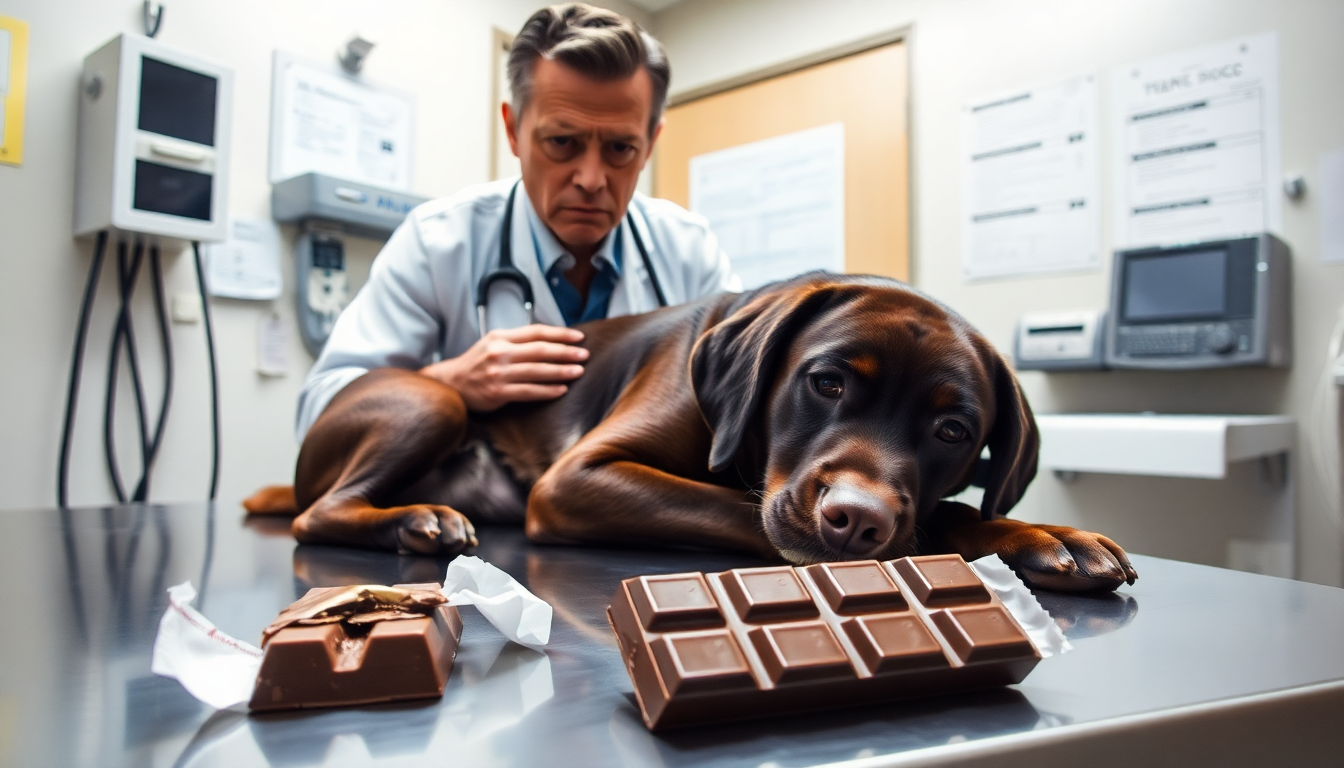
Can Dogs Eat Chocolate? Understanding the Risks
Can Dogs Eat Chocolate? A Common Misconception
For many pet owners, the question of ‘can dogs eat chocolate?’ may not seem significant at first. Chocolate is, after all, a hugely popular treat for humans. However, when it comes to our canine friends, it is crucial to approach this subject with care. Dogs and chocolate are a combination best avoided, and misunderstanding this can lead to dire consequences. Chocolate contains substances like theobromine and caffeine, which are toxic to dogs. Even small amounts can be harmful, potentially resulting in symptoms like vomiting, diarrhea, and even seizures. We love our furry friends, so it's essential to talk about why chocolate, a favorite human indulgence, should be off-limits to them.
Understanding Why Dogs Can't Eat Chocolate
The chemical components of chocolate that make it enjoyable and addictive for people can be deadly for dogs. The primary culprit is theobromine, a naturally occurring stimulant found in cocoa. Both theobromine and caffeine in chocolate have a direct adverse effect on a dog’s central nervous system and cardiovascular system. Unlike humans, dogs metabolize these substances much slower, allowing them the chance to build up to toxic levels in their bloodstream. Symptoms of chocolate poisoning in dogs can vary depending on the size, age, and overall health of the dog, as well as the amount and type of chocolate consumed. Dark chocolate and unsweetened baker’s chocolate pack the highest theobromine punch and are the most perilous for pups.
What Happens if a Dog Eats Chocolate?
If your dog manages to sneak a bite of chocolate, don’t panic but act promptly. The signs of chocolate poisoning can start to appear within a few hours post-ingestion and may include hyperactivity, increased thirst, an upset stomach, tremors, and a racing heart rate. In severe cases, seizures can occur, which might lead to severe complications or even death. The severity of the symptoms depends on the type and quantity of chocolate consumed and the size of your dog. A tiny Chihuahua ingesting a bar of dark chocolate is in much more peril than a large Labrador eating the same amount of milk chocolate. It's always better to err on the side of caution. If you suspect your dog has eaten chocolate, contact your veterinarian straight away or call a pet poison helpline immediately.
Alternatives to Chocolate for Dogs
The good news is that there are plenty of safe and delicious alternatives for dogs that can satisfy their treat cravings. Peanut butter is a favorite and can be used creatively in homemade dog treats. Pumpkin puree, mashed bananas, and yogurt are also popular ingredients that dogs tend to love. These treats not only satisfy your dog’s taste but also provide nutritional benefits. When looking for dog treats, always check the ingredient list and ensure none contain chocolate or chocolate-based products. Many companies produce treats designed to mimic the taste of chocolate using carob, which is completely safe for canine consumption. With these alternatives at hand, you can still spoil your dog without the risk chocolate poses.
Preventing Chocolate Incidents in the Future
Preventing your dog from eating chocolate begins with awareness and caution. Store chocolate products high up or in secure cabinets that dogs can’t reach. Be mindful during holidays or celebrations where chocolate is abundant, like Halloween, Christmas, or Easter. Educate friends and family about the dangers of feeding chocolate to dogs, ensuring they play their part in keeping your pet safe. Dog training is also vital. Teaching commands like “leave it” or “no” could prevent potential ingestion if chocolate accidentally falls onto the floor. Remember, it only takes a moment of distraction for a curious dog to indulge in this forbidden snack. By taking proactive steps, you can keep your furry family member healthy and happy.



Leave a comment
This site is protected by hCaptcha and the hCaptcha Privacy Policy and Terms of Service apply.